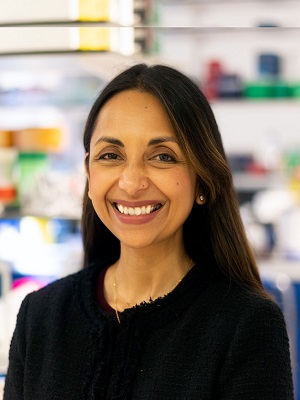Dr Paz Upasana Tayal - Cardiology
RESEARCH: HEART MUSCLE DISEASE - DILATED CARDIOMYOPATHY

How did you get into research?
After graduating, I applied for an academic foundation programme in Oxford. I got to do cardiac MRI research in Prof Stefan Neubauer’s lab. It was a great foundation for me – I worked with Prof Ollie Rider and his team on a clear project, learnt essential research skills and got my first paper. It set me up for everything that followed.
What do you enjoy about research?
The autonomy and creativity to think about the bigger picture. In clinical medicine, we are rightly focussed on the patient right in front of us and how can we make that patient better. In research, we can think about how to make things better for all patients, and that’s really special.
What was the most difficult aspect of doing your PhD?
Making the switch from clinical thinking which is very reactive and gives you immediate feedback. You know pretty quickly in clinical medicine if your treatment is working. In research, it’s much more long term investment, and you may not see the results for a long time.
What was the most challenging aspect of continuing your research after completing your PhD?
Keeping the momentum going with competing demands – clinical work and life! I was awarded a Clinical Lecturership which was invaluable to give me protected research time to focus.
What difference has your research training and experience made to your career?
I am a clinical academic cardiologist – this has only been possible because of the unique balance of clinical and academic training in my career so far.
How has research changed your clinical practice?
In cardiology we are very lucky, the research base is strong and many of our clinical practice decisions are informed by robust evidenced based medicine
What has made a difference to progressing your research career?
Having great mentors both inside and outside of my research area. I am indebted to Prof Sanjay Prasad who took me on to do a PhD in his group and supported me as my own research evolved.
Where do you see your clinical academic career going over the next 5 years?
I’ve just been awarded a 5 year MRC Clinician Scientist Fellowship which will allow me to develop my programme of work evaluating sex specific differences in dilated cardiomyopathy using a translational epidemiology approach.
Dr Paz (Upasana) Tayal, Cardiology, Imperial College London
Download Paz's research careers case study: Dr Paz (Upasana) Tayal - Case Study (PDF)


